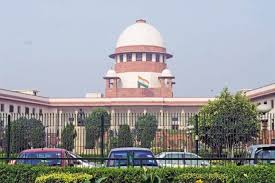To jointly and severally pay Rs. 6,11,638/- as compensation for medical negligence to Mrs. Sunita (Complainant) with 9 % simple interest from the date of filing of the complaint till the date of actual payment, within six weeks. Additionally, the NCDRC directed that Rs. 50,000/- to be paid to Mrs. Sunita as cost towards litigation expenses. The medical negligence was proved on account of the unjustifiable and forceful performance of Nasotracheal Intubation (hereinafter, ‘NI’) procedure on Mrs. Sunita on 13.05.2004, at Suretech Hospital. (Para 2)
The claimant, Mrs. Sunita filed Consumer Case 48 of 2005 before the NCDRC seeking Rs. 3,58,85,249/- i.e., Rs. 3.58 crores. However, the NCDRC only awarded her Rs. 6,11,638/- @ 9% simple interest as compensation for the medical expenses she incurred. She was further entitled to Rs. 50,000/- as cost for her litigation expenses. (Para 3)
Alleging medical negligence in her treatment at Suretech Hospital, resulting in permanent damage to her respiratory tract and permanent voice-loss, altering her life forever. (Para 10)
The NCDRC rejected the doctor’s suggestion of proceeding with ‘NI’ as a temporary measure on account of a lack of clear timeline. It was held that there was absolutely no justification for opting for ‘NI’, especially when the patient was recovering well. (Para 19)
To hold a medical practitioner liable for negligence, a higher threshold limit must be met. This is to ensure that these doctors are focused on deciding the best course of treatment as per their assessment rather than being concerned about possible persecution or harassment that they may be subjected to in high-risk medical situations. Therefore, to safeguard these medical practitioners and to ensure that they are able to freely discharge their medical duty, a higher proof of burden must be fulfilled by the complainant. The complainant should be able to prove a breach of duty and the subsequent injury being attributable to the aforesaid breach as well, in order to hold a doctor liable for medical negligence. On the other hand, doctors need to establish that they had followed reasonable standards of medical practice. (Para 38)
While determining whether the ‘NI’ procedure performed on Mrs. Sunita at Suretech Hospital on 13.05.2004, replacing the existing ‘TT’ after the bronchoscopy report did not reveal any abnormalities, amounts to negligence or not, the following aspects are worthy of consideration: a.) Whether there was a breach of duty of care, with respect to the ‘NI’ procedure performed on 13.05.2004. In case a breach did occur, specific breach of responsibility of the concerned person shall have to be established; and b.) Whether the subsequent medical complications, including permanent deformity in the respiratory tract and voice loss suffered by the patient can be directly attributed to the said breach in duty of care. (Para 39)
As reasoned earlier, the burden of establishing negligence is on the complainant. In this case, however, Mrs. Sunita had failed to prove medical negligence by the doctors. There is no evidence to establish that the ‘NI’ procedure is a bad medical practice or based on unsound medical advice. None of the hospitals where Mrs. Sunita was treated prior to Suretech Hospital opined that the ‘NI’ procedure was not medically acceptable. Additionally, none of the doctors who treated her subsequently opined that the ‘NI’ treatment was not a medically acceptable practice or that the said procedure had been performed negligently. On the other hand, the medical team at Suretech Hospital was able to successfully prove that due medical consideration was given before choosing the aforesaid ‘NI’ procedure. Therefore, no negligence was committed in opting for and/or conducting the aforesaid procedure. (Para 45)
Moreover, there was no breach of duty of care. In view of such conclusion, it is not necessary to look at a possible causal link between the subsequent medical complications and voice-loss as well as the permanent respiratory tract deformity. (Para 46)
In this particular case, the patient was treated and underwent different procedures at multiple hospitals. She underwent the ‘TT’ procedure at Gondia Hospital in an emergency situation. Subsequently, she was attended to by multiple medical experts at Suretech Hospital. Therefore, there is a possibility that these medical complications could have arisen at any of these hospitals or places where the patient underwent treatment. (Para 51)
Resultantly, we hold that there was no breach of duty of care at Suretech Hospital or on part of Dr. Biviji, Dr. Jaiswal and/or Dr. Shendre. The charge of negligence is, therefore, not proved. Hence, the impugned judgment awarding Rs. 6,11,638/- as compensation @ 9% simple interest p.a. on account of medical negligence committed by the single act of performing the aforesaid ‘NI’ procedure, is found to be erroneous and is set aside. (Para 56)
SUPREME COURT OF INDIA
2023 STPL(Web) 363 SC
[2023 INSC 938]
M.A Biviji Vs. Sunita & Ors.
Civil Appeal No. 3975 of 2018 With Civil Appeal No. 4847 of 2018 And Civil Appeal No. of 2023 (Arising Out Of Diary No. 21513 of 2018)-Decided on 19-10-2023
https://stpllaw.in/wp-content/uploads/2023/10/2023-STPLWeb-363-SC.pdf







